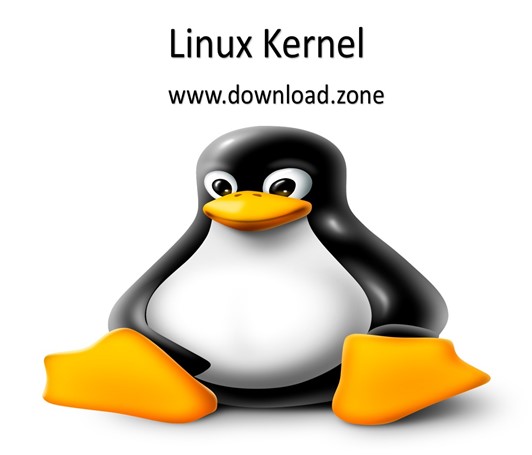Linux Kernel OS Download
Linux kernel is an essential part of any Linux operating system. It is responsible for resource allocation, low-level hardware interfaces, security, simple communications, basic file system management, and more. Written from scratch by Linus Torvalds (with help from various developers), Linux is a clone of the UNIX operating system. It is geared towards POSIX and Single UNIX Specification compliances.

Includes powerful features
It provides users with powerful features, such as true multitasking, multi-stack networking, shared copy-on-write executables, shared libraries, demand loading, virtual memory, and proper memory management.
Initially designed only for 386/486-based computers, now Linux supports a wide range of architectures, including 64-bit (IA64, AMD64), ARM, ARM64, DEC Alpha, MIPS, SUN Sparc, PowerPC, as well as Amiga and Atari machines.
The most essential component of a Linux-based OS
The most essential component of a Linux-based operating system is the Linux kernel. Without it, the entire system (libraries, applications, etc.) is useless. When creating a Linux distribution, it is also very important to know how to correctly optimize the package, in order to make it support certain hardware components or recognize a specific device.
Distributed in multiple stable branches
Once should not be confused by the many stable branches of this operating system, as they are available for different purposes. For example, there are several LTS (Long Term Support) branches that can be used to deploy very stable Linux operating systems.
These days, major Linux distribution developers provide users with optimized kernel packages for different purposes. However, advanced users can configure, compile and install their own kernels directly from the source packages at any point (all you need is a supported GCC compiler).
Multitasking
Multitasking is when multiple jobs are executed by the CPU simultaneously by switching between them. Switches occur so frequently that the users may interact with each program while it is running. An OS does the following activities related to multitasking:
- The user gives instructions to the operating system or to a program directly and receives an immediate response.
- The OS handles multitasking in the way that it can handle multiple operations/executes multiple programs at a time.
- Multitasking Operating Systems are also known as Time-sharing systems.
- These Operating Systems were developed to provide interactive use of a computer system at a reasonable cost.
- A time-shared operating system uses the concept of CPU scheduling and multi-programming to provide each user with a small portion of a time-shared CPU.
- Each user has at least one separate program in memory.
Multi-programming
Sharing the processor, when two or more programs reside in memory at the same time, is referred to as multi-programming. It assumes a single shared processor. Multi-programming increases CPU utilization by organizing jobs so that the CPU always has one to execute.
The heart of a Linux distribution
The Linux kernel is the heart of a Linux distribution. If you are a long time Linux user, you may have stumbled across upgrades to the default packages, which lead to better support for certain hardware components or peripherals.
Official Video Intro Linux kernel OS
- FreeBSD
- Linux-libre
- GNU Hurd
- OpenBSD
- MINIX 3
- NomadBSD
Linux kernel OS Overview

Technical Specification
| Version | 5.11.0 |
| File Size | 112 MB |
| Languages | English |
| License | Free |
| Developer | SOLUTIONS AND CONSULTING S.R.L. |
ad


Comments are closed.